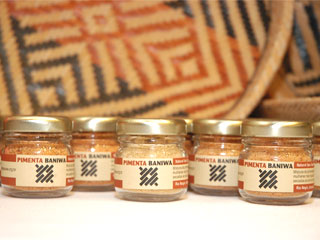Culture and development go hand in hand
More than just learning how to play instruments, young people that participate in cultural projects incorporate new visions of the world
Culture is the key element in social transformation and sustainable development. This concept was at the core of the theme panel "How cultural activities contribute to sustainable development" at the Instituto Ethos’ 2007 Conference, whose participants were Danilo Santos de Miranda, director of the regional department of Serviço Social do Comércio do Estado de São Paulo (Sesc-SP), Domingos Barreto Tukano, president of the Federação das Organizações Indígenas do Negro (FOIRN), Rubens Gomes, founder and director of Oficina Escola de Lutheria da Amazônia (Oela), and Kaká Wera Jekupé, director of Instituto Arapoti.
The panelists believe culture is a core element in every process of change in any community. "For being cross-cutting, culture allows a full human development. It covers from ethics to citizenship. The cultural attractions use symbol and sign. Therefore, they propose a new vision of the world for both players and the audience," explained Danilo de Miranda, of Sesc-SP.
There are countless examples of cultural projects that have led to an effective change in the place where they were implemented. "Culture is a collective phenomenon. It is the only element that can change the whole, because nobody creates culture alone. As a result, the action is not limited to teaching how to play a certain instrument. In this learning process, you unveil a new world to the adolescent, who starts practicing the ‘change’ in his/her surroundings", said Rubens Gomes, of Oela. For the musician, the social and the cultural sides are complementary; one cannot exist without the other.
Oela offers a basic course on Lutherie (the manufacture of stringed instruments) for young people of the community of the West side of Manaus. "The participants have music, computing and lutherie classes, and psychological counseling. We’ve also set up a company to sell the production of former students, who are formally employed, earn a living, acquire citizenship," added the musician. Gomes said that all the community went through a change after the project. "Even the houses had their market value increased because the media disseminates information on the Oela, making the neighborhood well-known."
The musician cites the example of Coca-Cola in Parintins, state of Amazonas, to show the power of culture. "The town is the only place in the world where the beverage is also sold with blue packaging, because of the color of Caprichoso, the blue bull, rival of Garantido, the red bull."
Culture can also be aligned with sustainable development, especially when it means maintaining the ways of life that do not degrade the surrounding environment. According to Domingos Barreto Tukano, of Foirn, developing culture means preserving one’s traditions. "We’re Mother Nature sons; nature is our culture. It is dying, and so are our cultures. Therefore, our work focuses on teaching the new generations and advertising what we do to all the society," said Barreto.
The cultural project that takes sustainable development to Barreto’s village is Banco Tukano, which manufactures the traditional stools used in local ceremonies. Made by Indians of this ethnic group, the piece of furniture is sold by Tok Stok stores. "Our production varies according to the rhythm of nature. Even if the businessperson asks for 5 thousand dozens (indigenous jargon), we won’t produce them because that’ll mean cutting trees," said Barreto. "All the money we get with the sales is directly given to the artisans. We, at Foirn, act as a bridge with the company. Besides preserving our art, we generate income for the community." Another example of the project is the Baniwa pepper, produced by the women of this ethnic group and sold in events throughout Brazil.
According to Kaká Werá Jekupé, of Instituto Arapoti, the Indians do not sell their production to accumulate wealth, but to support their tribe and, mainly, perpetuate their culture. "Transmitting values is our business."
Fonte: Instituto Ethos

> Petrobras Watch the Petrobras coverage
© Copyright 2007, Instituto Ethos de Responsabilidade Social Empresarial. Todos os direitos reservados






